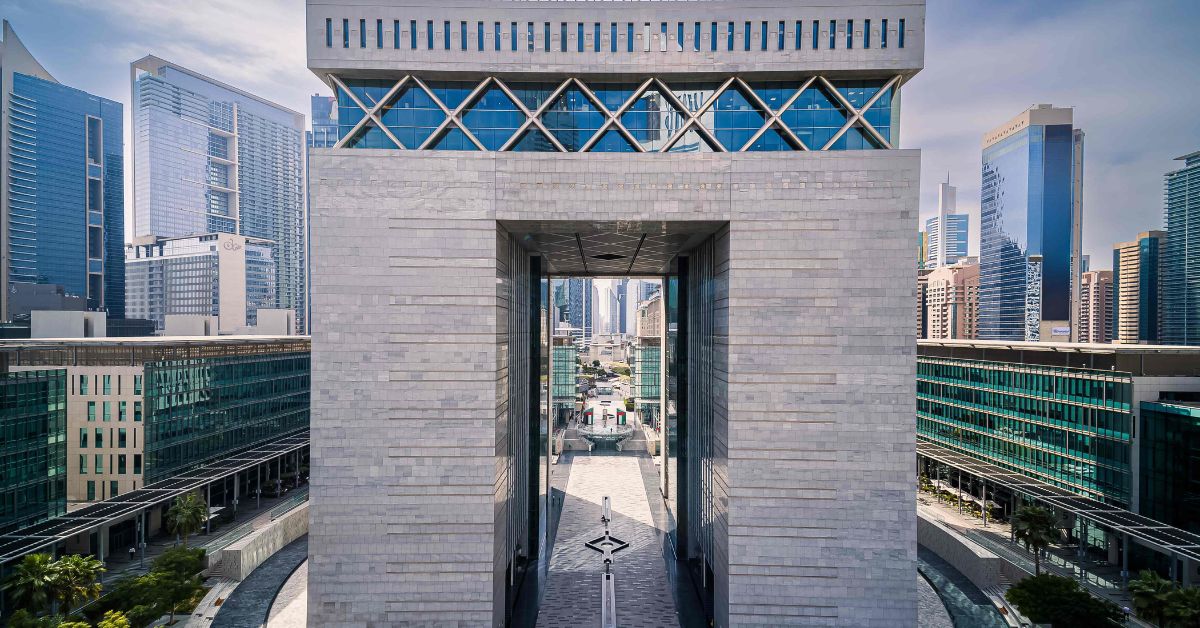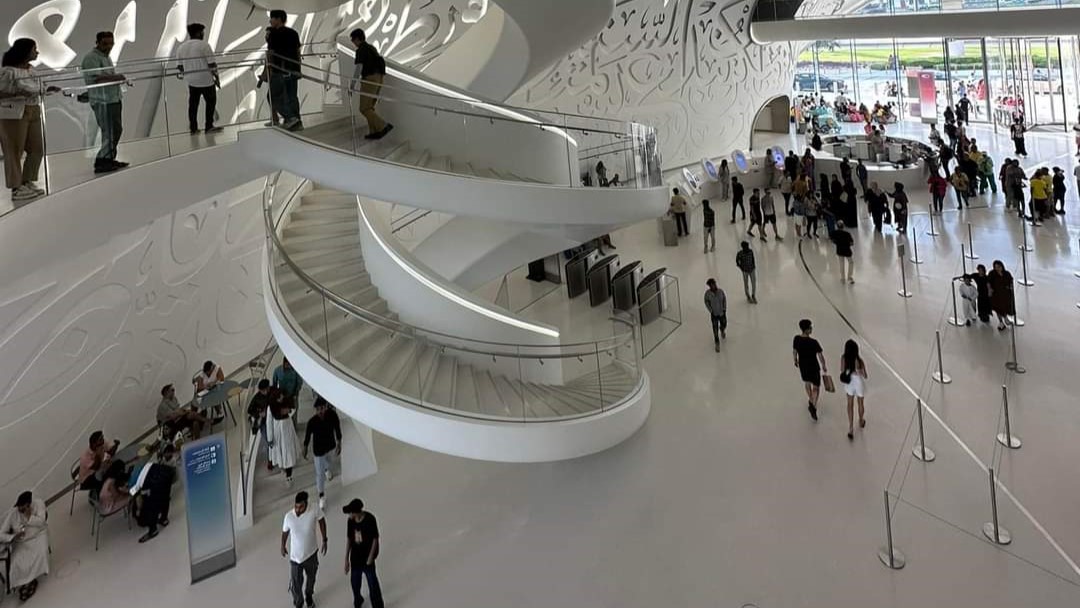DUBAI, UAE — Over the years, Dubai has emerged as a beacon of entrepreneurial promise and innovation. Known for its bold vision and unwavering pursuit of excellence, the city stands as a testament to the limitless possibilities awaiting those with an entrepreneurial spirit.
This city, deeply rooted in tradition yet forward-looking, has established itself as a global hub for pioneers and innovators. It offers an ecosystem brimming with opportunities across industries, from technology to finance and hospitality to renewable energy.
In just a few decades, Dubai has transformed from a humble trading post to a bustling metropolis, attracting visionaries eager to bring their ideas to life. Its strategic location positions it at the crossroads of East and West, making it a prime gateway for businesses aiming for a global reach. With its well-thought-out infrastructure, top-tier amenities, and a strong commitment to business ease, Dubai fosters entrepreneurial ventures like few other places.
The city’s progressive leadership consistently supports and encourages entrepreneurs, making it a key attraction. Programs like the Dubai Future Accelerators and the FinTech Hive at the Dubai International Financial Centre (DIFC) equip both budding and established businesses with the tools, insights, and networks essential for success in today’s market.
From its state-of-the-art free zones and pro-investor policies to its dynamic startup culture and access to a diverse global talent pool, Dubai’s commitment to innovation and entrepreneurship is set to influence industries and inspire future innovators.
“Cities like New York, Paris, Singapore, and others are strong competitors, but Dubai has unique advantages: its infrastructure, connectivity, diverse talent pool, especially in the startup sector, and the fact that living and working in Dubai is more affordable than in many global cities,” notes Dhiraj Joshi, Partner at Arthur D. Little Middle East.
Dubai’s closeness to Eastern Europe and India, two significant talent hubs, combined with the minimal time difference between these regions, gives the city a unique edge. This advantage, coupled with Dubai’s high quality of life, tax benefits, exceptional connectivity, and superior living standards, makes it an enticing choice for young tech entrepreneurs.
Startups that rely solely on their resources must have several elements in place to succeed: remote yet accessible teams, a safe and dependable living environment, a favorable tax rate, a diverse group for idea testing, access to funding and expert advice, and government support.
Dubai checks almost all these boxes, though there’s room for improvement in the last two areas. “But when you take a step back and view the broader picture, Dubai surpasses cities like London, Los Angeles, Berlin, Bengaluru, Tokyo, and Singapore in many respects,” says Joshi.
Challenges for entrepreneurs
However, entrepreneurs venturing into Dubai encounter several hurdles. The foremost is the availability of institutional capital. Joshi believes that compared to other global cities, the VC landscape in Dubai is still maturing. The predominant funding comes from family offices, primarily deploying individual or family-owned capital.
Furthermore, funds in Dubai typically have a shorter lifecycle than in other major business hubs. “Compounding this challenge is the fact that while funds might be accessible, they often lack the expertise to guide startups’ growth,” Joshi points out.
In a conversation with TRENDS, Joshi emphasized that startups require more than just capital. They need mentorship, which is somewhat scarce in the region, not just in Dubai. He elaborated, “Startups need nurturing, not just a rush to achieve a profitable exit. Addressing this requires a comprehensive ecosystem approach.”
Moreover, there’s a need to update regulations to accommodate contemporary business models. The journey is still long; for instance, the banking sector needs to evolve quickly to match advancements in other industries. For the entire ecosystem to thrive, sustained funding is essential.
Dubai should establish a long-term, institutionalized grant system and a regulatory framework that outpaces other cities.
Additionally, Dubai should prioritize supporting startups in terms of funding, adopting a long-term perspective, and fostering an ecosystem. Joshi suggests, “We see promising initiatives in places like ADGM. Dubai has the potential to excel in this area and set a benchmark. The government could consider strategies like establishing vertically-focused capital, bringing in expertise for long-term startup guidance, and encouraging businesses to allocate resources to assist startups in their domain.”
“Ecosystem development should be our topmost priority,” Joshi concludes.

What to Invest In?
Entrepreneurs in Dubai are diversifying their investments across various dynamic sectors, leveraging the city’s strategic benefits and progressive business climate.
Technology and innovation lead the charge, with a rise in startups focusing on fintech, artificial intelligence, blockchain, and smart city solutions.
Despite its maturity, the real estate sector remains appealing for entrepreneurs, especially those targeting niche markets, sustainable development, and cutting-edge construction technologies.
Hospitality and tourism consistently draw attention, with innovators aiming to transform the guest experience using novel concepts and advanced technologies.
Renewable energy and sustainability are gaining traction, with Dubai’s dedication to a sustainable future creating opportunities in solar energy, waste management, and green technologies.
Healthcare and biotechnology are also on the rise, fueled by increasing demand for top-tier medical services and groundbreaking healthtech solutions. Additionally, e-commerce and digital marketing are expanding as entrepreneurs utilize Dubai’s strategic position to access the booming global e-commerce sector.
Collectively, these sectors underscore Dubai’s reputation as a hotspot for entrepreneurial ambition, offering a plethora of opportunities for visionaries attuned to market shifts.
Dubai champions several initiatives promoting innovation and entrepreneurship. The Dubai Future Foundation, for example, leads the charge in establishing Dubai as a global innovation hub, launching programs like the Dubai Future Accelerators. This initiative connects government bodies with pioneering startups for collaborative, transformative projects.
The Dubai International Financial Centre (DIFC) runs the FinTech Hive, an accelerator nurturing fintech startups through mentorship, funding avenues, and a broad industry network.
The Dubai Technology Entrepreneur Campus (DTEC) provides cutting-edge co-working spaces, mentorship schemes, and networking events tailored for tech-centric startups.
Furthermore, free zones like Dubai Internet City and Dubai Silicon Oasis offer entrepreneurs a supportive environment with tax breaks and entrepreneur-friendly regulations. These collective efforts highlight Dubai’s dedication to bolstering entrepreneurs and innovators, fostering an environment that welcomes groundbreaking ideas and guides them to success.
Entrepreneurs and green businesses
Dubai’s unwavering commitment to sustainability and green technologies is reshaping its business landscape, unveiling a myriad of opportunities for visionary entrepreneurs.
Government-led renewable energy goals, showcased by endeavors like the Mohammed bin Rashid Al Maktoum Solar Park, have sparked a thriving market for solar energy startups and clean tech ventures.
Initiatives such as the Dubai Clean Energy Strategy 2050, targeting 75 percent of the city’s energy from clean sources by 2050, have amplified the demand for innovative energy efficiency, waste management, and sustainable transit solutions.
Entrepreneurs specializing in green building technologies, including energy-saving materials and intelligent building solutions, find a growing market in Dubai’s property sector, which increasingly prioritizes sustainability certifications like LEED and BREEAM.
The Dubai Green Economy Strategy outlines a path for entrepreneurs to champion eco-friendly business practices, offering incentives and backing for those leading the charge in environmental conservation. In this evolving green landscape, entrepreneurs with sustainable visions are well-positioned to contribute to Dubai’s environmental objectives and benefit from a city transitioning to a more sustainable future.

